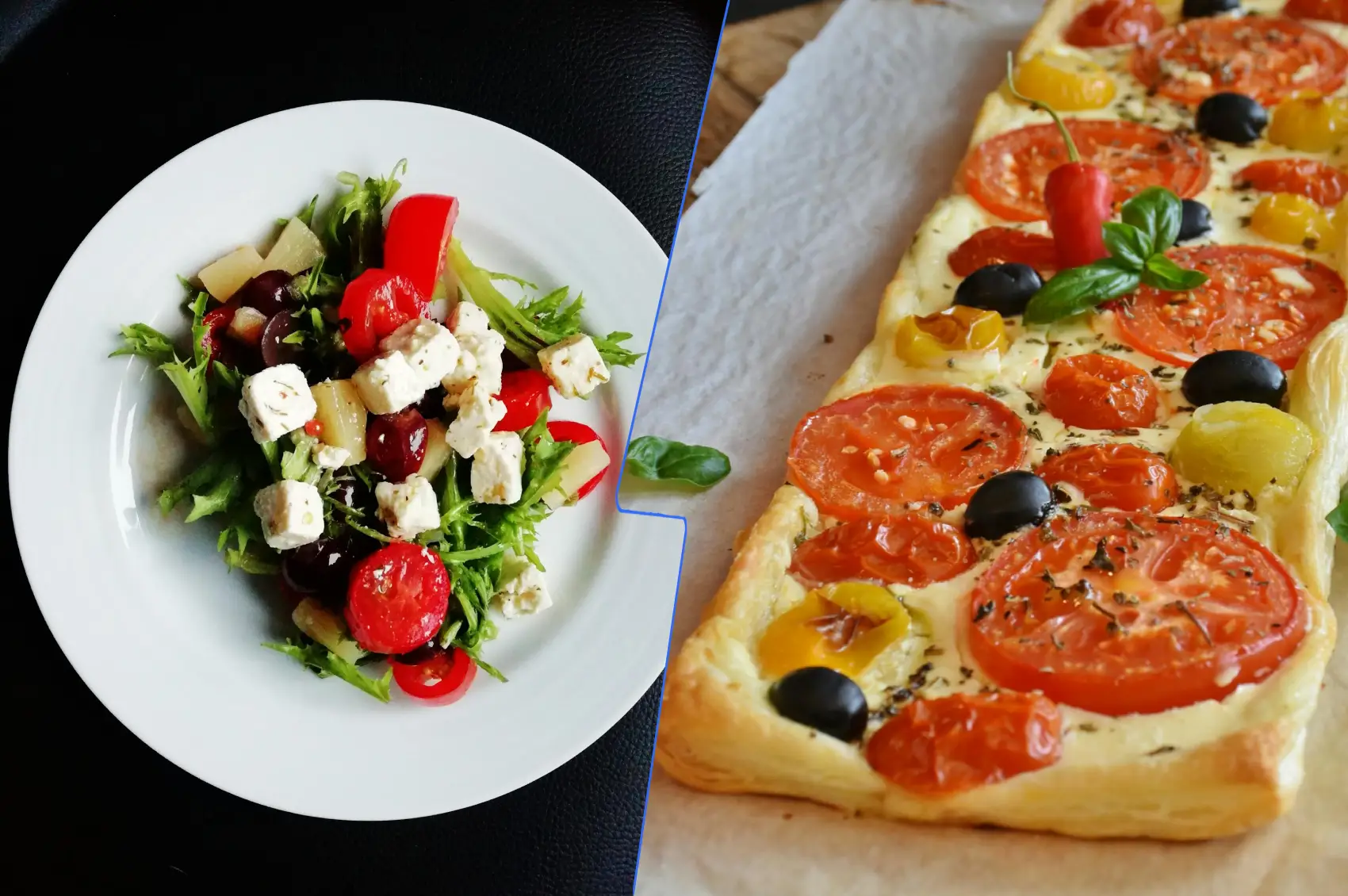Introduction
As health awareness increases globally, the Mediterranean and vegetarian diets have captured the attention of many seeking better health through informed dietary choices. Each diet supports a unique nutritional approach and has cultural and historical significance. This article compares these diets, examining their benefits, ease of adoption, and the variety of foods they encompass.
Understanding the Diets
Mediterranean Diet
Origins: Emerging from the eating habits of Mediterranean countries like Greece and Italy, this diet gained prominence following the Seven Countries Study by Ancel Keys in the 1950s, which linked it to reduced heart disease.
Key Features:
- Plant-rich: Emphasizes fruits, vegetables, and whole grains.
- Healthy Fats: Primarily includes fats from olive oil and nuts.
- Protein Sources: Focuses on fish and poultry; limits red meat.
- Natural Seasonings: Utilizes herbs and spices to enhance flavors naturally.
Health Benefits: Research shows the Mediterranean diet lowers heart disease risk, supports weight loss, and may reduce neurodegenerative disease risk.
Ease of Adoption: This diet is easily adaptable, focusing on fresh, accessible ingredients without excluding any food group completely.
Popular Dishes:
- Greek Salad
- Ratatouille
- Paella
- Hummus
- Caponata
Essential Ingredients:
- Olive oil
- Beans
- Whole grains
- Fresh produce
- Nuts
Vegetarian Diet
Origins: With roots in ancient religious practices advocating non-violence, the modern vegetarian movement started in 1847 with the founding of the Vegetarian Society in England.
Key Features:
- Excludes Meat: Completely omits animal flesh.
- Subtypes: Includes variations like lacto-ovo, lacto, and vegan.
- Fiber-Rich: High intake of fruits, vegetables, and grains.
- Nutrient-Focused: Aims for a balanced diet rich in essential nutrients.
Health Benefits: Known for reducing chronic disease risks, lowering BMI, and improving cholesterol levels.
Ease of Adoption: Transitioning to a vegetarian diet is facilitated by the growing availability of vegetarian products and meat substitutes.
Popular Dishes:
- Chana Masala
- Vegetable Stir-Fry
- Lentil Soup
- Margherita Pizza
- Tofu Scramble
Essential Ingredients:
- Lentils
- Quinoa
- Tofu
- Greens
- Berries
Comparative Analysis and Discussion
Both diets emphasize high vegetable intake and minimal processed foods, aligning them with dietary guidelines that promote health and longevity. The Mediterranean diet includes a broader range of flavors and nutrients, such as omega-3 fatty acids from fish, which benefit heart and cognitive health. On the other hand, the vegetarian diet supports ethical and environmental causes by excluding meat.
Global Popularity and Statistics:
- Adoption Rates: These diets are followed by millions globally, with vegetarians making up about 18% of the global population.
- Food Variety: Both diets offer a wide array of recipes; the vegetarian diet particularly boasts thousands of plant-based options.
Celebrity Endorsements:
- Mediterranean Diet: Supported by celebrities like Penélope Cruz and Giorgio Armani.
- Vegetarian Diet: Favored by stars such as Paul McCartney and Natalie Portman.
Conclusion
Choosing between the Mediterranean and vegetarian diets depends on personal health objectives, ethical considerations, and taste preferences. Both provide significant health benefits and can adapt to meet various nutritional needs and lifestyles.
Engage with Us
We invite your thoughts on the Mediterranean and vegetarian diets. Which do you prefer, or how do you combine aspects of both in your diet? Share your experiences in the comments below, and spread the word on social media to foster a healthy dialogue about these nutritious diets.





